The members of the legal profession I talk to about judicial fraud invariably resort to the same histrionics. They spread out their arms, they roll up their eyes, they give their faces a somewhat painful expression, they sigh – in short, they pose as appropriate for one about to deliver some particularly painful, yet profoundly deep and necessary morsel of wisdom.
Having primed themselves to look like Jesus Christ about to deliver the sermon on the mount, they proceed with disburdening themselves of the following gem: “judges are humans, and sometimes make a wrong decision.”
The contrite tone of the voice, the implied invitation into deeper mysteries of wisdom that admits to fundamental imperfections of this world is clearly calculated to win us to their argument.
Yet the temptation to look wise, and to accept it must be resisted, for the argument itself is nothing but hogwash.
Here is why.
Let’s start by asking a very basic question: what is an error? Here is a simple mathematical example: compare the values of “zero” and “ten.” It would be an “error” to say that “zero is equal to ten;” it would likewise be an error to say “zero is greater than ten;” it would NOT be an error to say “zero is less than ten.”
This established, let us turn to federal judges deciding a case. Plaintiff, a private individual suing the government, puts before the judge ten’s worth of factual and legal argument. The defendant, US, replies with a zero worth of argument.
How should the federal judge decide so the decision could be considered as “wrong?” He should obviously point out in his or her decision that plaintiff provided a ten’s worth of argument in favor of his position, and the government provided a zero’s worth of argument to prove that it is in the right, and that therefore government wins, and plaintiff loses.
This would clearly be a decision that could be called “wrong” – yet such decisions are virtually non-existent.
Why? Because any reader of that decision would see that the judge who made it is a moron.
Yet federal judges, just like anyone else, do not particularly like it when that particular word is being applied to them. On the contrary, they want to be seen by us as fountainheads of unreachable wisdom and learning, speaking down to the lowly us from the tall Olympus of high-minded rightfulness. They want to impress and to awe us – certainly, not to become laughing stock to which the attribute of a “moron” would relegate them.
So what do they do when government presents zero’s worth of argument, and plaintiff a ten, and yet they want to decide for the government? Do they make a “wrong” decision?
No, they are not that foolish; they know the math pretty well. So what they do do, is they make a fraudulent decision. As my litigation experience in federal courts shows, they either substitute in their decisions government’s argument with “facts” they fabricate out of thin air, and with “law” that government’s lawyers never mentioned, giving the government a “twenty” worth of argument instead of the “zero,” or by making the facts and the law that plaintiff adduced simply vanish into thin air, substituting plaintiff’s “ten” with a judge’s “zero.” And then, the judge simply proceeds to write the decision that says “the government won because twenty is greater than ten” or “the government won because plaintiff provided zero’s worth of argument.”
So although the decision is patiently unjust, it is not “wrong:” twenty is indeed greater than ten, and zero is indeed a negligible number. The problem of course is that both the “government’s” “twenty” and the “plaintiff’s” “zero” are not “government’s” and “plaintiff’s,” but judge’s own.
This renders judge’s decision to be not merely unjust, but non-judicial. It is parties to the case who supply the argument, because the very purpose of the argument is to convince the judge to decide the case in a particular way. Once a judge starts creating argument, he or she of necessity becomes a party to the case. And since it is axiomatic that a judge cannot possibly be party to the case adjudicated before him or her, but has to be impartial, the judge cannot possibly be acting as a judge while supplying the argument for parties. The use of substitutionary procedure aimed at avoiding a “wrong” decision, renders that decision non-judicial.
So here we are. It is often wrong to speak of a federal judge’s decisions as “right” or “wrong.” We should rather talk of “judicial” and “non-judicial” decisions; of decisions that are “legitimate,” and decisions that are “fraudulent.”

